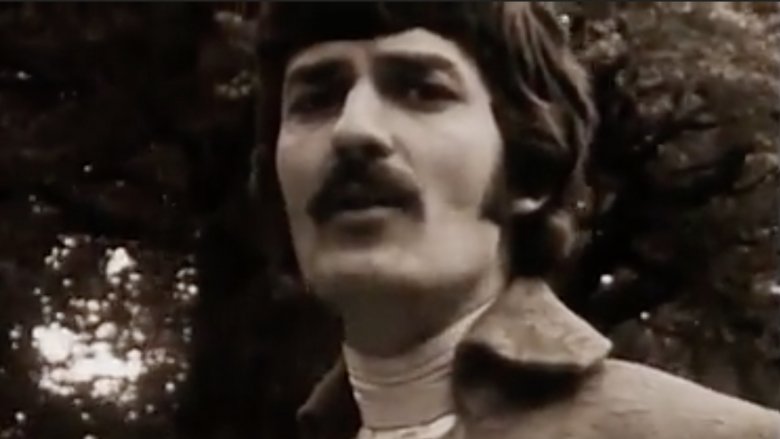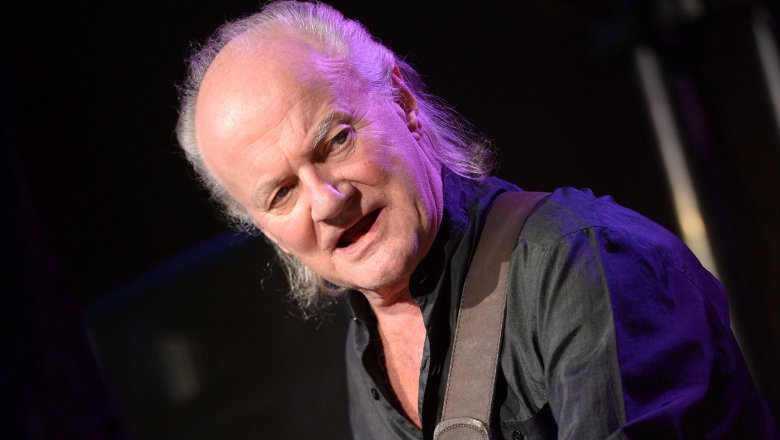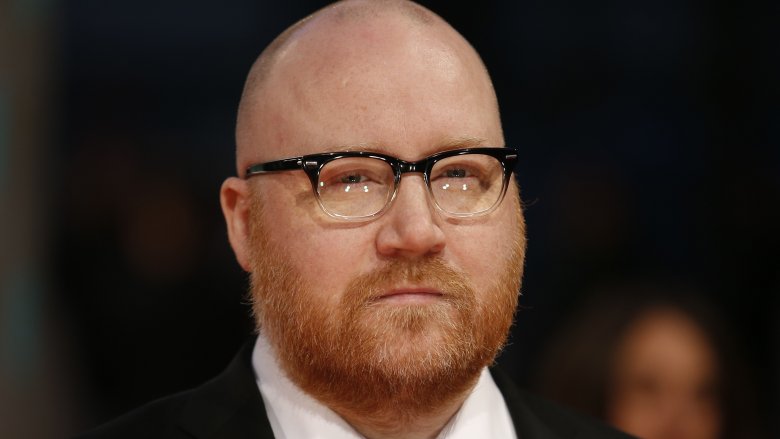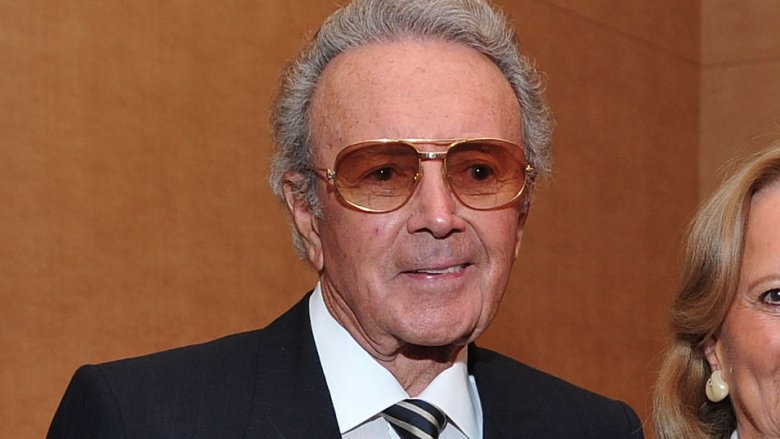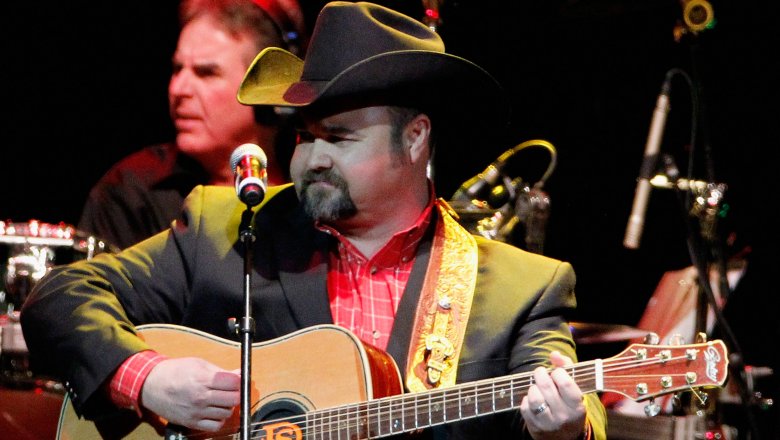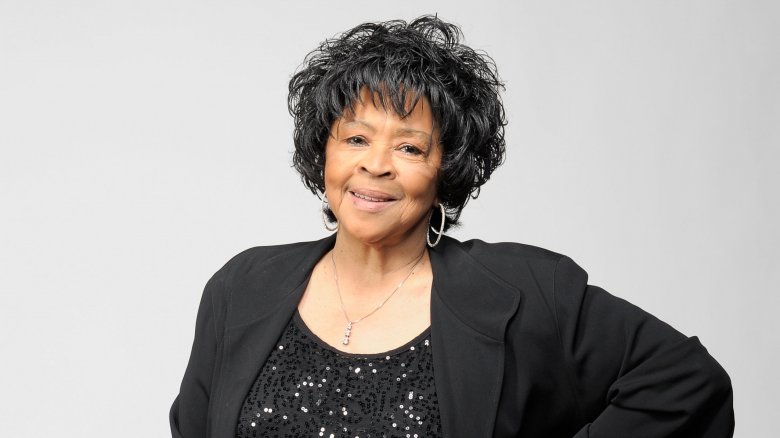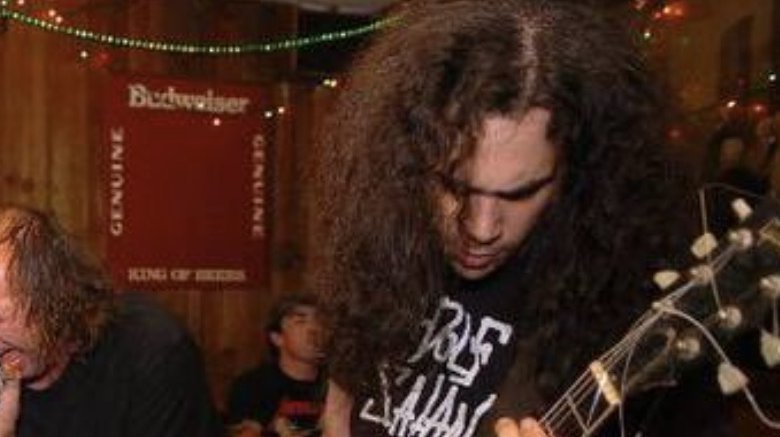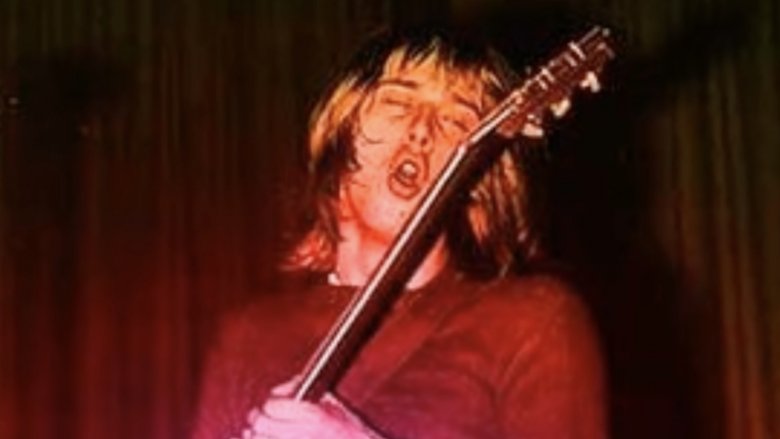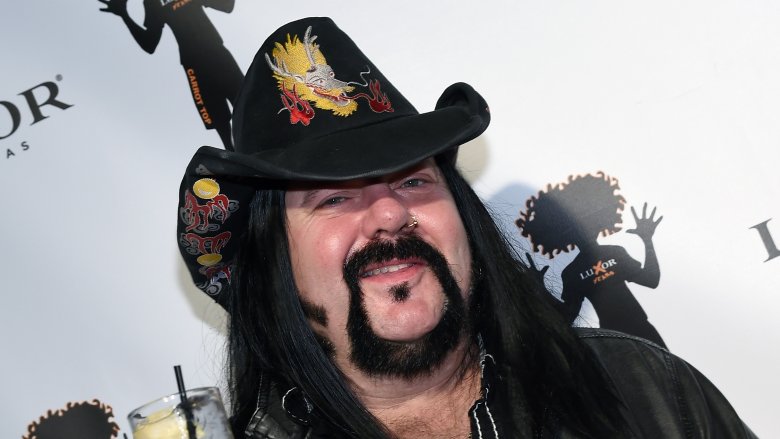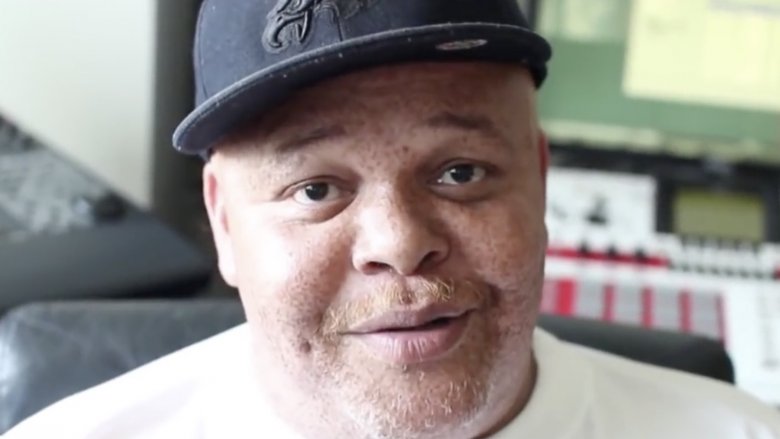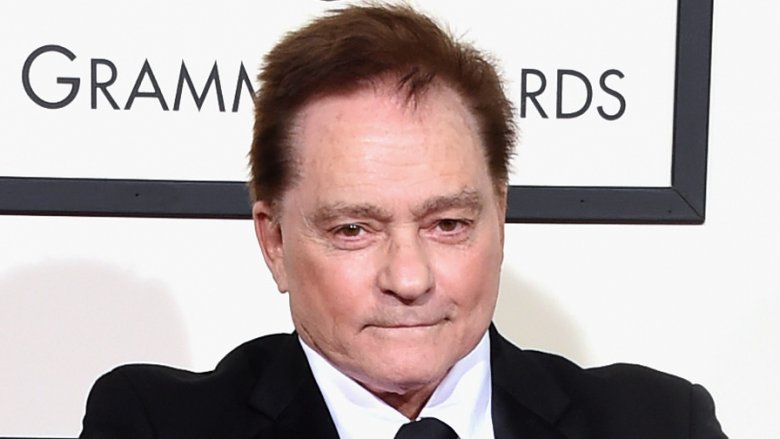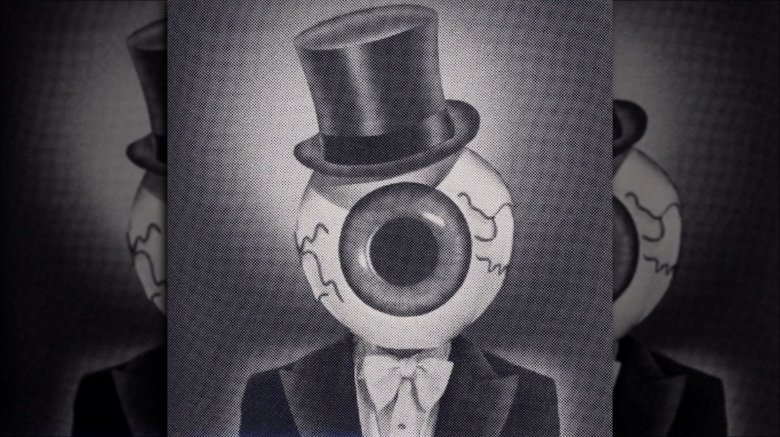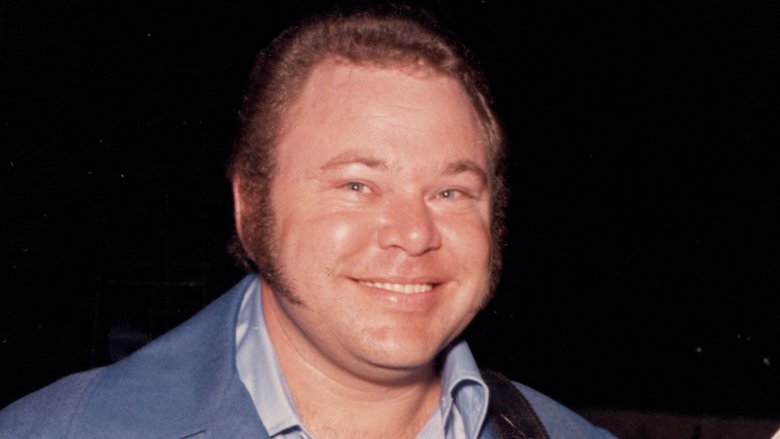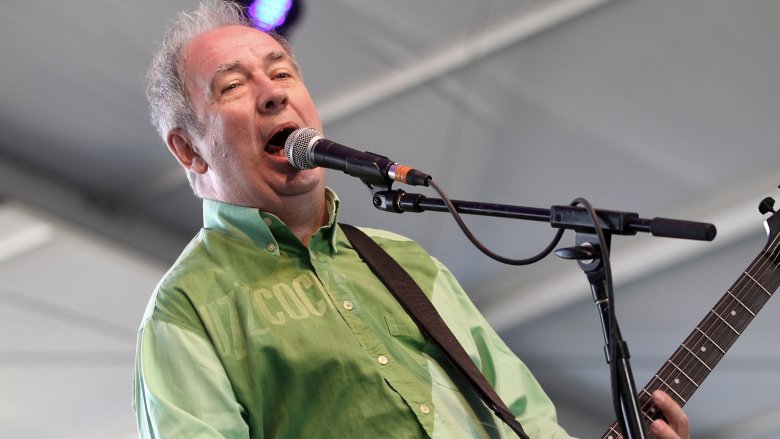Musicians We Lost In 2018
Back in the 1980s, there was that movie (and the TV show it was based on) called Fame. The film's theme song, also called "Fame," was written from the perspective of a young, budding performer like those depicted on-screen, proclaiming that she was "gonna live forever." Now, nobody was suggesting that fame would literally make anyone immortal and no longer subject to the one steadfast rule of being human (that death will come one day). Rather, "Fame" (and its singer, Irene Cara) metaphorically and accurately pointed out that artistic achievement does actually, in a way, allow a person to live forever.
Those talented individuals who make artistic contributions to the world, the kind of people who share their amazing abilities with the rest of us, never fully die because their work persists through time, delighting and inspiring others for years on end. Here are some people for whom the theme song from Fame tragically applies. These musicians of various genres shed their mortal coil in 2018, but their compositions, performances, and works of brilliance will probably outlive all of us.
Ray Thomas, a Moody guy
For 50-ish years now, teens have loved grooving to spacey prog-rock on headphones while sitting on beanbag chairs, staring at lava lamps, and thinking about space, time, and the nature of life itself, man. They couldn't have done it without arguably the proggiest of all prog bands, the Moody Blues, and that band wouldn't have existed without Ray Thomas. He founded the first incarnation of the band in 1964 and was one of its first singers. As the band evolved and adopted its classic lineup that included singer Justin Hayward, Thomas switched roles slightly to become one of the few and certainly one of the best flute players in rock 'n' roll history.
Thomas' work is all over iconic Moody Blues stuff like Days of Future Passed and "Nights in White Satin," and he still sang on occasion, particularly on songs he wrote, such as "Twilight Time" and "Legend of the Mind." Thomas retired from the band in 2002, and announced he had prostate cancer in 2013. On January 4, he died at his home in Surrey at age 76, just three months before his band was inducted into the Rock and Roll Hall of Fame.
No more mötoring for Fast Eddie Clarke
Clarke earned his nickname — he was a lightning-quick guitarist who teamed with Motörhead singer Ian "Lemmy" Kilmister to create propulsive, bewildering, chaotic, drugged-out, grimy, dirty, working class rock 'n' roll — in other words, metal. Clarke joined the legendary British band in 1976 and played on many albums with the group, which wound up being the band's most well-received, including the self-titled Motörhead, along with Overkill, Bomber, and Ace of Spades. Fast Eddie was the last surviving member of that classic Motörhead lineup, with drummer Phil Taylor having died in 2015, and Lemmy following suit not long after.
In 1982, Clarke left Motörhead and formed the hard rock band Fastway, probably best known for the 1983 rock radio hit "Say What You Will." But while you can take the boy out of Motörhead, you can't take the Motörhead out of the boy. "The best years of my life were in Motörhead," Clarke told Antihero Magazine in 2016. He died on January 10 in a London hospital at age 67 while being treated for pneumonia.
Dolores O'Riordan couldn't linger
Amidst all the angst and macho-posturing often present in early 1990s grunge and alternative rock, the Cranberries offered something different: alternately exuberant and melancholy pop with a traditionally Irish-inspired through-line. Much of that came from the unforgettable and haunting voice of the band's lead singer, Dolores O'Riordan. Born in Limerick, Ireland, she joined the group formerly known as the Cranberry Saw Us when she answered an ad looking for a female singer. She got the gig, of course, because of her beautiful, clear, and versatile voice, propelling songs like "Linger," "Zombie," and "When You're Gone" to international hit status. (That's to say nothing of "Dreams," which has been used in approximately every movie trailer produced since the song was a hit in 1994.) She had to cancel some Cranberries tour dates and take most of 2017 off because of back issues, but when O'Riordan was found deceased in her London hotel room on January 15, 2018, it was still quite a shock, as she was a mere 46 years old.
Jim Rodford is not there
Jim Rodford played bass with two of the most popular and most loved classic rock bands of the twentieth century — although he wasn't an original member of either. In the mid-1960s, keyboardist Rod Argent asked his cousin, Rodford, to join a new band he was putting together called the Zombies. Rodford declined, as he was already in a band called the Bluetones. Nevertheless, he helped his cousin's band get their start, loaning them his band's equipment and helping them book their first shows. (They'd go on to score hits like "Time of the Season" and "She's Not There.") After the Zombies broke up, Argent formed, uh, Argent, in 1969, finally convincing his cousin to play alongside him. After racking up future classic rock staples like "Hold Your Head Up" and "God Gave Rock and Roll to You," Argent split, only for Rodford to move over to the Kinks, replacing original bassist John Dalton. He stayed with that group until their split in 1996. Rodford finally did become a member of the Zombies ... in 2004, when the group reunited.
It fell to Rod Argent to inform the world, via Facebook, of his cousin and collaborator's death "after a fall on the stairs" on January 20, 2018.
Now you know about Lari White
In 1988, 23-year-old singer-songwriter Lari White moved to Nashville to become a star, and she found success almost instantly, winning the Nashville Network's proto-American Idol talent contest You Can Be a Star. Not quite a star performer yet, White found work as a songwriter for a major Nashville publisher, penning tunes for major acts like Shelby Lynne and Tammy Wynette. It wasn't until 1993 that White got a chance to take the spotlight, and she did quite well, racking up a half dozen country music hits including Top 10 smashes like "That's My Baby," "Now I Know," and "That's How You Know (When You're in Love)." After her performing career started to fade a bit, White returned behind the scenes, producing songs for Toby Keith and others while also getting into acting. Remember at the end of Cast Away, when Tom Hanks finally delivers that unopened FedEx package adorned with angel wings to Texas and meets its recipient, a truck-driving red-headed lady named Bettina Peterson? That's Lari White. She passed away January 23 from a rare form of cancer at the age of 52.
The father of South African jazz
Trumpet and flugelhorn player Hugh Masekela is regarded as the "Father of South African jazz," deftly combining the coolness and crispness of American jazz with the depth and flavor of different musical styles of his home country and continent. He's also one of the first stars of "world music," a ridiculously broad and self-centered term often used by Europeans and North Americans to describe all music that didn't originate in Europe or North America. But still, Masekela's impact can't be understated. In 1959, his group the Jazz Epistles recorded Jazz Epistle Verse 1, the first album ever by a South African jazz band.
A year later, his outspoken stance on South Africa's racist apartheid system got him exiled from the country, so he lived most of his life in Botswana and the United States, where he improbably spent three weeks at No. 1 on the pop chart in 1967 with "Grazing in the Grass," a laidback jazz instrumental. That marked one of the very few times in pop music history that a non-European or non-American act was at the top of the pops. Masekela also played with Graceland-era, "world music"-embracing Paul Simon in the late '80s. The jazz legend and political figure was 78 when he died on January 23, 2018.
The fall of the Fall's Mark E. Smith
Popular music broke wide open in the 1970s, with an excitingly large variety of styles competing for public attention, from punk to New Wave to dance music to reggae to the stark and free-form genre called "post punk." Which one of these would be the sound of the 1980s? Judging by the music left behind by Mark E. Smith, all of them, if he'd had his way. The Manchester-born Smith formed his band The Fall in 1978, and for 40 years it was his vehicle to try whatever musical flight of fancy captured his attention. While his lyrics often boasted wit, wordplay, and complex concepts, the music varied greatly, combining elements of punk, dance, garage rock, reggae, and more. The Fall released 32 albums, and while they never had a hit single, per se, they were hugely influential, laying the groundwork for the thoughtful dance music of the '80s and beyond, and the era-defining alternative rock of the '90s. Smith was 60 years old, and he passed away quietly (for once) at home on January 24, 2018.
Talkin' 'bout Dennis Edwards
It can't be easy joining a band after it has already had major success and after its beloved stars have left. It's almost always a no-win situation to fill those very big shoes while also leading the group into new and successful territory. But this story isn't always of the "Gary Cherone of Van Halen" variety, because there are also musicians like Dennis Edwards.
After the Temptations delighted millions of fans throughout the 1960s with perfect pop songs like "My Girl" and "Ain't Too Proud to Beg," lead singer David Ruffin left the group in 1968, and Edwards had the seemingly thankless job of replacing him. (The Temptations didn't look far too find their guy — Edwards was a member of The Contours, a Temptations-esque group that had opened for the Temptations on tour.) However, this was right when the band was heading into its weird, psychedelic-funk phase, and Edwards was the right guy to hold the audience's hand on innovative, future-thinking songs like "Papa Was a Rollin' Stone." Edwards was part of the Temptations off and on until 1989 — the year the act entered the Rock and Roll Hall of Fame — and had a solo hit in 1984 with "Don't Look Any Further." According to Edwards' wife, the unlikely pop icon passed away from complications of meningitis on February 1, 2018, just two days shy of his 75th birthday.
Lovebug Starski invented hip-hop
Also known as Little Starsky, Lovebug Starski was present and active for one of the most creatively explosive times/places in music history: the Bronx in the late 1970s, and the birth of hip-hop. While not as well known as contemporaries like Kool Herc and Grandmaster Flash, Starski helped popularize the genre of speaking-in-rhythm-to-funky-backing tracks. While still in his teens, Starski was both an MC and also a DJ, performing and leading parties at clubs and releasing early hip-hop singles like "Gangster Rock" and "Dancin' Party People."
The man's most enduring contribution to hip-hop, however, is probably that he coined the term "hip-hop." According to NPR, Starski was anchoring a party for a friend who was about to ship out for military service and he teased the guy, pretending to be a drill sergeant ordering him to march: "hip, hop, hip, hop," etc. Keith Cowboy, part of the Furious Five (as in Grandmaster Flash and the Furious Five) was there, too, and he and Starski turned it into a call-and-response — Starski would say "hip," and Keith Cowboy would say "hop." Before long, Starski used a chant he derived from that exchange to get crowds worked up, which went something like, "hip, hop, hippy to the hippy hop-bop." That was interpolated by the Sugarhill Gang in "Rapper's Delight," the first major hip-hop hit ... which gave the music and its culture its name. Lovebug Starski died on February 8 at the age of 57.
Jóhann Jóhannsson leaves this planet
There are only a handful of film composers who enjoy name recognition among even casual movie or music buffs, and Jóhann Jóhannsson was among them. Maybe that's because of the actual name itself, which is delightfully alliterative, but the guy was also extremely prolific and had a unique sound among modern film musicians — his scores were minimal, haunting, and experimental. For his trouble, Jóhannsson was routinely recognized by his peers, with two Academy Award nominations (for his work on the wildly-different-from-each-other movies Sicario and The Theory of Everything), along with multiple Golden Globe, BAFTA, and various critical guild kudos for those two films, as well as for his spooky work on Arrival. More than just a movie music composer, the Icelandic musician also wrote original works for the theater, dance companies, and television, and found the time to release six solo albums, too. Jóhannsson was discovered deceased in his Berlin apartment on February 9. He was only 48 years old.
No one could lounge around better than Vic Damone
Damone was one of the last surviving members of those mid-20th-century Italian-American crooners loved by your grandparents and whoever lazily programs the music at the Olive Garden. Like Frank Sinatra, Dean Martin, or Jack Jones, Damone's joyful, smooth, and professional baritone made plenty of entries in the Great American Songbook into lounge singer standards. Damone had a few "signature" tunes, such as the theme song from the movie An Affair to Remember, "You're Breaking My Heart," and "On the Street Where You Live." Was Damone something of a poor man's Frank Sinatra? Sure, and in a 1992 interview with Newsday (via USA Today), he admitted as much.
"I decided that if I could sound like Frank maybe I did have a chance," he said. "I was singing his words, breathing his breaths, (doing) his interpretation, with the high notes, the synergy."
Ol' Blue Eyes didn't seem to mind — Sinatra once said Damone boasted "the best pair of pipes in the business." The reliable and entertaining Damone, 89, died on February 11 from complications of a respiratory illness at a Miami Beach hospital.
Daryle Singletary was old school until the end
Thanks to musicians like Billy Ray Cyrus and Garth Brooks, country music boomed in popularity in the early 1990s. The wave helped all ships to rise. Even the less slickly produced, more traditional country guys like George Strait and Randy Travis got a visibility boost, and the doors were opened for new singers of that ilk, such as Daryle Singletary. While he made do playing bars in Nashville, Singletary's demo for a song called "An Old Pair of Shoes" caught the attention of Travis, and his then-wife Elizabeth jumped at the chance to manage the young singer. Randy Travis produced Singletary's self-titled debut album, which included big country hits like "Too Much Fun" and "I Let Her Lie." He had a few more hit singles, then settled into a neo-traditionalist style. In 2017, he teamed up with singer Rhonda Vincent to release American Grandstand, a collection of covers of classic country duets. On February 12, 2018, the 46-year-old Singletary died unexpectedly at his home in Lebanon, Tennessee.
Craig Mack put some flava in ya ear
If you were a '90s kid, you probably at some point put Craig Mack's "Flava in Ya Ear" on one of your famous mixtapes. Mack had a few hits, but that 1994 jam was a Top 10 smash, and the song for which he'll always be best known. The story of how Mack ascended to fame is music industry legend. He ran into Sean "Diddy" Combs, then known as Puff Daddy, at a Manhattan club called Mecca in the early '90s. Combs promised the young Long Island rapper a record deal if he could freestyle over a Mary J. Blige track. Mack did, so Combs obliged. He became one of the first stars on Combs' Bad Boy Records, which released "Flava in Ya Ear" in 1994. A remix of the song launched Bad Boy's next, and more famous act — Christopher Wallace, AKA Biggie Smalls, AKA The Notorious B.I.G. In recent years, Mack had quit music in favor of a pursuit of religion. He was living in South Carolina and was the subject of a still-in-the-works documentary about his new life when he died of heart failure at age 46 on March 12, 2018.
Yvonne Staples took you there
There were a lot of family acts that broke big in the 1970s, including the Osmonds, the Jackson 5, and the Partridge Family (who weren't really related, but still). But probably no family band was as polished and staggeringly talented in the pipes department as the Staple Singers. The group formed way back in 1948 as a gospel act — "Pops" Staples put his kids Cleotha, Mavis, and Pervis to work. When Pervis was drafted into the Vietnam War, formerly left-out sibling Yvonne Staples stepped up. Good timing: In 1971, the group released its first album of secular gospel-funk, The Staple Swingers. Yvonne Staples sang backup (the group's clear leader was Mavis Staples) on huge, soulful hits like "I'll Take You There" and "Let's Do It Again." Staples family friend Bill Carpenter told the New York Times that Yvonne Staples "was very content in that role. She had no desire to be a front singer, even though people in the family told her she had a great voice." Tempting and resisting sibling rivalry and resentment once more, Yvonne Staples later served as a backup singer and road manager for Mavis Staples in her solo career. Yvonne Staples, the best sister anyone could have, was 80 years old when she died on April 10.
Randy Scruggs, the secret architect of country music
Scruggs was an important piece of the Nashville sound for almost 40 years. Before he started his long career as a sideman, songwriter, and producer, Scruggs had a name to live up to — his father was Earl Scruggs, legendary bluegrass banjo player and half of the duo Flatt and Scruggs (best known for the 1949 instrumental classic "Foggy Mountain Breakdown"). (Randy Scruggs performed with his dad on TV at the age of 9, and in the '70s, he formed a duo with his brother, Gary. Called the Earl Scruggs Revue, the duo had a hit in 1979 with "I Could Sure Use This Feeling." After that fizzled out, Scruggs stepped out of the spotlight just a bit to produce for people like Emmylou Harris and Waylon Jennings and do session work for Johnny Cash, George Jones, and Wilco. He wrote more than 100 songs for other artists, and was named the Country Music Association's Musician of the Year — an award for overall musicianship that usually goes to backup musicians and instrumentalists — in 1999, 2003, and 2006. Scruggs died at the age of 64 on April 17.
Avicii woke us up
Since the dawn of the 2010s, superstar DJs have been the new rock stars, holding court before thousands of revelers as they press buttons, combine disparate sounds, keep the party going, and wait until just the right moment to let the beat drop. EDM, short for the umbrella title "electronic dance music," has grown into a mainstream genre thanks to dudes like Calvin Harris, Skrillex, and Tim Bergling, a Swedish DJ and producer better known by his stage name, Avicii. He said he got the name from Buddhism, which refers to "the lowest level of hell," but life was seemingly anything but hellish for the guy.
Avicii parlayed his success as a masterful live entertainer into short-form radio hits, such as "Levels," "You Make Me," "I Could Be the One," and "Wake Me Up," which hit No. 4 on the Billboard Hot 100 in 2013 on its way to becoming one of the most inescapable tracks of the decade. While Avicii was doing great, Tim Bergling wasn't. At age 21, the musician was diagnosed with acute pancreatitis, which he attributed to excessive drinking. At age 25, he had his appendix and gallbladder removed. Not long after, he announced that he had to quit touring and doing live gigs, but would keep making as much music as possible in the studio. Sadly, he wouldn't make much more — he passed away on April 20, 2018 at just 28 years old.
Glenn Branca waves goodbye
Along with punk bands like the Ramones, New York in the late '70s was a Petri dish for a sound and scene called No Wave. Akin to free-form jazz, No Wave rejected punk music's rough and raw revival of early rock 'n' roll in favor of dissonance, atonality, noise, and experimentation. Guitarist and composer Glenn Branca was extremely instrumental in the No Wave movement, both with his band Theoretical Girls, as well as with compositions such as Lesson No. 1 and solo albums like The Ascension. That record is as close to a blueprint or thesis as the freewheeling and inventive Branca would get, using odd tunings and walls of sound made up of loud, noisy, and often unmelodic guitars.
Branca carved out a career as a composer of modern, progressive symphonies that were performed all over the world, and his influence on noise rock and grunge was both direct and indirect. He worked with members of bands like Swans and Helmet, and he personally introduced fellow No Waver Lee Renaldo to Thurston Moore, who formed Sonic Youth together. The 69-year-old musician died in his sleep in May 2018 after a battle with throat cancer.
Scott Hutchison's sad songs were all too true
Frightened Rabbit is (or sadly and most likely "was") an indie folk/rock band from Scotland. At the heart of the group were the songs of frontman Scott Hutchison, who took the band's name from a childhood nickname his mother gave him when he was an extremely shy child. He kept that emotional vulnerability when he grew up and wrote songs, many of which explored depression and other mental health issues, which strongly resonated with fans who have endured a similar fate. (Hutchison once penned a handwritten note to one such fan: "All I really wanted to say is that no matter how dark life seems, you are never alone. There is always hope.")
Failed romances were particularly hard on Hutchison, but he turned that heartbreak into art. The Frightened Rabbit album The Midnight Organ Fight came about in the wake of a breakup, and it includes the song "Floating in the Forth," which alludes to suicide. He once told Vice that taking his own life was "a thought that I've taken to a place that I'm far less comfortable with."
Tragically, Hutchison's body was discovered in Edinburgh in May 2018, shortly after he'd been reported missing. It's suspected he died by suicide. The singer-songwriter was 36.
If you or anyone you know is having suicidal thoughts, please call the National Suicide Prevention Lifeline at 1-800-273-TALK (8255).
The grindcore legend taken down by an escalator
The Providence Place Mall in Rhode Island ended its Memorial Day 2018 with a tragic accident. According to a police report acquired by local TV station WPRI, at around 10:45 p.m., a man was "clowning around the riding the rail" of a mall escalator. That's when he lost his balance and fell from the second story to the food court below. His head crashed into a table on the way, and he was treated for head trauma at the scene before being transported to a local hospital, where he was pronounced dead. "It's quite a big drop," Providence Police's David Lapatin told WPRI. "Anybody who has been to the Providence Place Mall in the food court, you see the two escalators going up to the movie theater and Dave & Buster's, you know how high that is."
The guy "clowning around" who fell to his death at the New England mall was identified as Josh Martin. He was a Massachusetts-based guitarist veteran to many bands of the grindcore genre (like heavy metal, but really loud, really fast, and really dark). In addition to colorfully named groups like Failure Clinic, Impaled Northern Moonfest, and Adolf Satan, Martin was best known as a member of An*l C*nt, from 1996 to 2001, and again from 2006 to 2011. Martin was 45.
Danny Kirwan was instrumental in the Fleetwood Mac attack
Before Fleetwood Mac became soft-rock superstars with Stevie Nicks, they were one of many 1960s English blues-rock bands. In 1968, founders Mick Fleetwood and John McVie recruited guitarist Danny Kirwan, whose guitar skills and what Fleetwood called a "love for the blues" got him into the group when he was just 18. Kirwan came out of the gate strong — his first recording with the band was the song "Albatross," which hit #1 on the English singles chart. He ultimately played (and sang) on the Mac albums Then Play On, Blues Jam at Chess, Kiln House, Future Games, and Bare Trees. The tour for the latter marked Kirwan's last days in Fleetwood Mac — the band fired him because of his issues with alcohol.
Kirwan went on to record four solo albums in the '70s, but for most of his life he struggled with mental health and homelessness. In 1993, Mick Fleetwood sought the help of the U.K.'s Missing Persons Bureau to track him down; they found him at a London homeless shelter, where he'd been living for four years. Kirwan was inducted into the Rock and Roll Hall of Fame in 1998 as a member of Fleetwood Mac, but he didn't attend the ceremony. Kirwan was 68 years old when he passed away on June 8.
D.J. Fontana laid down the rhythm of rock n' roll
Before the British Invasion came along and made rock 'n' roll all about three chords and euphemisms, the revolutionary genre was a wild mix of R&B and rockabilly – D.J. Fontana helped create, hone, and spread that distinctive sound. He was Elvis Presley's drummer during the King's 1950s heyday.
In the early '50s, Fontana scored a gig as the house drummer on a radio show called The Louisiana Hayride. When Presley played the show with guitarist Scotty Moore and bassist Bill Black in 1955, he liked Fontana's style so much he asked him to join the band, solidifying the lineup that would propel Presley to international superstardom. Fontana's loose but jaunty style drove some of the King's biggest hits, including "Heartbreak Hotel," "Hound Dog," and "Don't Be Cruel." In all, Fontana drummed on 400 Presley recordings.
When Elvis focused on making silly movies in the '60s, Fontana became a Nashville session musician, but reunited with Elvis for his famous 1968 comeback special. Later in life, his legacy landed him gigs playing with members of the Rolling Stones and the Band, and he backed Paul McCartney on a 2000 cover of Presley's "That's All Right." Fontana was Inducted as a sideman into the Rock and Roll Hall of Fame in 1999. He died June 13 in a Nashville hospice facility at the age of 87.
A violent end to the troubled life of XXXTentacion
XXXTentacion's life and rap career had two things in common: They were both very brief and fraught with peril. The South Florida native born Jahseh Onfroy was among the most notable "Soundcloud rappers," releasing his first song, "Vice City," to the service in 2014, along with an EP and a handful of albums. His first "official" single, "Look at Me," hit the top 30 of the Billboard pop chart in 2017. Later that year, XXX dropped his first non-Soundcloud album, 17, which peaked at #2 on the album chart. His follow-up, ?, went all the way to #1.
All that success came amid a troubled personal life. In 2016, he reportedly assaulted a lover and threatened to cut out her tongue because he caught her singing another musician's song. Later in the year, he strangled and held a knife to the throat of the same woman, allegedly for being unfaithful. A few days after the woman learned she was pregnant in October 2016, XXX allegedly terrorized her, with severe beatings, death threats, and locking her in an apartment for two days until she escaped.
Prosecutors charged the rapper with aggravated battery of a pregnant woman, domestic battery by strangulation, and other charges, although he never resolved the case. On June 18, 2018, XXXTentacion was fatally gunned down in Florida in what police believe was a robbery. The rapper was only 20.
The man behind the beats that made Pantera famous
The guy that members of Papa Roach called "the nicest guy in metal" has died. Vinnie Paul, born Vincent Paul Abbott, played drums for Pantera, a band he formed with his brother, guitarist "Dimebag" Darrell Abbott in the early '80s, up until the band's demise in 2003. That group became one of the biggest (and fastest) metal bands of the '90s, and they even hit #1 in 1994 with their third album, Far Beyond Driven. Pantera's success was due in part to Paul's singular, propulsive groove, which he credited to his Texas upbringing, full of blues rock from the likes of ZZ Top and Stevie Ray Vaughan.
After Pantera singer Phil Anselmo split up Pantera, Paul and his brother quickly formed a new band called Damageplan. That group ended in tragedy when, at a 2004 concert, a man shot "Dimebag" Darrell Abbott to death. Since 2006, Paul sat behind the kit for Hellyeah, a metal supergroup which also included members of Mudvayne and Nothingface.
Paul's death was announced via the Pantera Facebook page in late June. No details about the cause of death were revealed, other than the fact that Paul was just 54 years old.
Ellen Joyce Loo was a superstar singer in Hong Kong and Taiwan
Born in Toronto, Ellen Joyce Loo moved with her family to Hong Kong at the age of 4 and signed her first recording contract as a teenager. In 2002, she broke through with musical partner Eman Lam Wee-Man as "Cantopop" duo at17 (they sang pop in Cantonese), combining electronic, folk, rock, and other styles. By 2010, Loo decided she needed to change things up — she dissolved at17 to go solo, left Hong Kong for Taiwan, and even abandoned singing in Cantonese in favor of Mandarin. Her musical experimentation with a pop sensibility continued unabated, however. Just last year, Loo won a music industry prize and used the occasion of her acceptance speech to publicly come out as a lesbian.
Loo also struggled with mental illness, having been diagnosed with bipolar disorder in 2013. "Over the past few years, she had been fighting a very tough battle in the face of the disturbances caused by mental illness and bipolar disorder. We have always been on her side, hoping to offer her support and power," said a representative of People Mountain People Sea, a production house that worked with Loo early in her career. Sadly, that came in response to the August 5 discovery of Loo's body outside the high-rise building where she lived in Hong Kong, following reports to local police of a falling woman. The singer was 32.
It's unclear whether Loo's death was a suicide, but if you or anyone you know is having suicidal thoughts, please call the National Suicide Prevention Lifeline at 1-800-273-TALK (8255).
Long live the Queen of Soul
Only a handful of musicians have earned an honorific title — Elvis Presley was The King, Bruce Springsteen is The Boss, and Aretha Franklin was The Queen of Soul. It was a nickname she very much deserved, bringing her soaring and unbelievable voice to the world of contemporary music in the 1960s, leaving it a better place than she found it. Franklin then took the verve of gospel music she honed singing in church and recorded multiple songs of love and empowerment, including "Think," "Chain of Fools," and "Respect," which spoke to the civil rights and feminist movements of the era.
Franklin enjoyed a rare second act, when, after disco made her real soul stylings briefly passé, she returned as a pop singer in the 1980s with huge hits like "Freeway of Love," and her duet with George Michael, "I Knew You Were Waiting (For Me)." All told, Franklin scored 17 Top 10 hits on the Billboard pop chart, and 20 No. 1s on the R&B end. In 1987, she became the first woman inducted into the Rock and Roll Hall of Fame, and she sang at inauguration festivities for Presidents Carter, Clinton, and Obama. The Queen was quite possibly the best singer ever, and no less an authority than Rolling Stone said as much, placing her at No. 1 on its "100 Greatest Singers of All Time" list in 2008.
Franklin died at her home in Detroit on August 16. According to her publicist, the singer had suffered from advanced pancreatic cancer. She was 76.
Randy Rampage could do punk and metal
The guy born Randy Desmond Archibald would ultimately come to be known as Randy Rampage, and he became one of the biggest names in hard, loud, and heavy Canadian rock. As the founding bassist of the hardcore punk band D.O.A., Rampage played on the band's first two albums, Something Better Change (1980) and Hardcore '81 (1981). Tossed from the group in 1982, he came and went with the band, including a final stay from 2006 to 2009.
Rampage moved on from punk to metal, and from bass to vocals, when he helped form the band Annihilator in the late '80s. He took the mic on their 1989 debut Alice in Hell, and after a long time away, joined up again for 1999's Criteria for a Black Widow.
At the time of his death he was working on Bloodied But Unbowed, an authoritative documentary about the 1970s Vancouver, B.C., punk scene. The producers of the film shared on its Facebook page the news that Rampage had died on August 14, 2018. "Randy Rampage left us to reign in the heavens. A punk legend has moved on," the post said. Rampage was 58.
Lynyrd Skynyrd's Ed King is gone with the wind
Lynyrd Skynyrd is the definitive Southern rock band thanks to hits like "Free Bird," "Tuesday's Gone," and especially "Sweet Home Alabama." Oddly enough it took a guy from California to help the group nail down its sound. West coaster Ed King joined Skynyrd in 1972, the third guitar in its unique triple-guitar sound. He also co-wrote "Sweet Home Alabama," and he can be heard doing the "1-2-3" countdown in the beginning of the iconic tune.
Before he joined such a definitive '70s band, King was in a definitive '60s band: the psychedelic pop band Strawberry Alarm Clock, which gave the world "Incense and Peppermints." King was part of that group in 1968 when it opened for Skynyrd, and at a gig in Jacksonville, Florida, he straight up asked to join. The band took him up on the offer in 1972, first putting him on bass and then moving him to guitar. King's work appears on Skynyrd's first three albums: (Pronounced Leh-nerd Skin-nerd), Second Helping, and Nuthin' Fancy. He left the band in 1975 when he decided he was over the band's constant fighting. Nevertheless, in 2006, more than 30 years after his departure, he was inducted into the Rock and Roll Hall of Fame as a member of Lynyrd Skynyrd.
According to a post on King's Facebook page, he died at his home in Nashville on August 22, 2018. No cause of death was shared, but King had recently battled lung cancer. The guitarist was 68.
DJ Ready Red made Houston rap famous
The late '80s/early '90s rap group Geto Boys is probably most famous for outspoken members Bushwick Bill and Scarface, as well as for its often horrific and gory lyrical content. But behind all that came irresistible hooks and a smooth R&B flavor, and that was set in place by DJ Ready Red. The man born Collins Leysath became the Houston collective's first DJ and producer in 1986, and he stayed a Geto Boy until 1991, when he left during the recording of the album We Can't Be Stopped. That LP included the band's first hit and arguably its best known tune, "Mind Playing Tricks on Me," which topped the Billboard rap charts and hit the pop top 30.
According to an Instagram video posted by his Geto Boys cohort Willie D, the 53-year-old DJ Ready Red died of an apparent heart attack on August 24, 2018. The rapper credited "the Musical Enforcer" with giving the Geto Boys its sound. He also helped make Houston a viable rap scene with a distinctive vibe. H-Town rapper Bun B paid tribute to the late DJ Ready Red on Instagram, saying Red was "a big reason that Houston is on the map."
Kyle Pavone 'came as a Roman,' and left tragically too soon
In 2008, singer and keyboardist Kyle Pavone joined the Michigan band We Came as Romans. The group formed a few years earlier prior, but the 18-year-old vocalist's powerful pipes gave the band the final piece it needed for breakout success. Thanks in part to Pavone's contributions, the group developed a huge following in the world of metalcore (one part heavy metal, one part punk) with its five full-length indie label albums, including the Billboard top 10 hit Tracing Back Roots in 2013. This fall, the band was set to receive some major exposure as the opening act on a national tour for Bullet for My Valentine.
But it wasn't meant to be. On August 25, 2018, Pavone was pronounced dead at a Michigan hospital, following nearly a week of hospitalization. A cause of death was not immediately provided; Pavone was only 28. "We will miss his smiles, his sincerity, his concern for others, and his impressive musical talent," his heartbroken bandmates wrote on the We Came as Romans Instagram page.
This wasn't 'The Way' it was supposed to go for Mac Miller
Precocious rapper Mac Miller first gained a lot of attention in 2010 for his mixtape K.I.D.S. when he still was one — he was just 18. It spawned the hit single "Knock Knock," and the next year his first studio album, Blue Slide Park topped the charts. Miller stayed at the forefront of music from that point on, releasing more hit singles like "Small Worlds" and "Self Care," producing music for other rappers, and starring on his own MTV2 show, Mac Miller and the Most Dope Family.
In addition to his music, Miller made headlines for his personal life, including his high-profile relationship with pop star Ariana Grande. They broke up in May 2018, shortly before Miller hit a utility pole with his G-Wagon and was charged with DUI and fleeing the scene. Miller was often frank and open about his struggles with substance abuse and depression, both in his songs (particularly on his 2014 mixtape Faces) and in interviews."I used to rap super openly about really dark sh*t," Miller told Vulture, "because that's what I was experiencing at the time."
According to police officers who spoke with TMZ, Miller was found by a friend in his home in California's San Fernando Valley, where he was pronounced dead on September 7. (A cause of death was not immediately given.) Miller, born Malcolm James McCormick, also worked under various pseudonyms like Larry Fisherman, Delusional Thomas, Larry Lovestein, and Easy Mac. He was 26.
Marty Balin got Jefferson Airplane off the ground
That entire psychedelic sound that defined the late '60s (and the hippie generation) wouldn't have happened were it not for guitarist Marty Balin. In 1965, the former folk musician (born Martyn Buchwald) formed a band with Paul Kantner, and after recruiting some more San Francisco-area musicians, Jefferson Airplane was complete. (They got huge with the addition of singer Grace Slick in 1967.)
Balin played guitar and sang backup for the Airplane on some of its biggest hits, including "Somebody to Love," "Volunteers," and "White Rabbit," and played live at all three of the biggest rock festivals of the era, from the highs of Woodstock and Monterey Pop to the lows of Altamont, where he was severely beaten by the Hells Angels working security. Balin briefly quit Jefferson Airplane to manage other bands, but returned when the group re-emerged in the mid-'70s as Jefferson Starship. That iteration's biggest hit, the #3 smash "Miracles," was a Balin composition. But the arrangement didn't last, and Balin left the group for a solo career in 1978, marked by the soft rock radio standard "Hearts."
Balin was 76.
The music remains for this All That Remains guitarist
With his very long hair, cool graying beard, and love of playing Flying V-style guitars, Oli Herbert struck an imposing image, and that of the prototypical heavy metal axman. In 1998, he helped form the band All That Remains, and along with singer Phil Labonte, remained the only original member and played on all nine of the influential group's nine studio albums. All That Remains had just started promoting its tenth record, the forthcoming Victim of the New Disease, when it posted some sad and shocking news about Herbert on its social media accounts: The guitarist suddenly passed away in October. A cause of death for Herbert, just 44, was not immediately revealed. "Oli was an incredibly talented guitarist and song writer who defined Rock and Metal from the Northeast," the band wrote alongside a photo of Herbert. "His impact on the genres and our lives will continue indefinitely."
Hardy Fox has changed his residence
From their founding in 1969 up until just a couple years ago, the highly influential (and delightfully weird) art rock group the Residents was shrouded in secrecy. That's true physically, as the band most always took the stage in elaborate costumes — its most famous look consisted of tuxedos matched with head-covering eyeball masks. All of its many members also stayed anonymous, with all band dealings coming courtesy of the appropriately titled "The Cryptic Corporation." The Residents, in other words, always did things their own way, including 60 albums of experimental, envelope-pushing music, released on its own Ralph Records label.
In 2011, musician Hardy Fox revealed that he and Homer Flynn had always been the chief minds, actors, and composers behind the Residents. But fans only had a few years to reflect on a known Resident. In September 2018, Fox announced that he had "something in my brain that will last to a brief end." In October, he died at the age of 73.
Roy Clark brought real chops to Hee Haw
For more than 20 years, Roy Clark hosted Hee Haw, a country music-themed take on Laugh-In that far outlasted contemporary TV variety shows. Clark yukked his way through the notoriously corny jokes and skits of Hee Haw, which also showcased country music performances. Clark's selection as host made sense because he was a familiar, friendly, and accomplished presence from the world of country music. He was already a virtuoso guitarist and banjo player by the age of 17, when he took the stage of the famed Grand Ole Opry for the first time. He'd later be named a member of that exclusive club, and was eshrined in the Country Music Hall of Fame, scored a Grammy, and won Entertainer of the Year honors at the 1973 CMA Awards.
In the '60s and '70s, Clark racked up huge hits on the country chart, including "Come Live With Me," "Somewhere Between Love and Tomorrow," and "Yesterday, When I Was Young," which crossed over to the pop top 20. Some other, more singular achievements in the life of Roy Clark: He was Johnny Carson's first-ever guest host on the Tonight Show, and in 1983, he was the first performer to open a theater in what's now the entertainment destination of Branson, Missouri. Clark was 85 years old, and according to his publicist, he passed away from complications of pneumonia at his home in Oklahoma.
RIP to LFO's Devin Lima
Among the four- and five-member boy bands of the '90s who sang sweet, sappy love songs about how they will love and cherish you so much, girl, in came LFO to disrupt the TRL rankings and Backstreet Boys-patented formula. First of all, there were only three of them, and they didn't sing so much as they half-sang/half-rapped in a style now most associated with Drake. Also, their songs were lyrically baffling. Take this opening stanza from "Summer Girls," LFO's first and biggest hit, from 1999: "New Kids on the Block had a bunch of hits/Chinese food makes me sick/And I think it's fly when girls stop by for the summer."
But LFO (short for "Lyte Funkie Ones") kept up the boy band standard of being photogenic and charming, especially one Devin Lima. His vocal stylings helped propel the band to the upper reaches of the charts with singles like "Summer Girls" and "Girl on TV." Lima, just 41, passed away on November 21 after a yearlong fight against adrenal cancer. Tragically, he's the second LFO member to die far too young. Bandmate Rich Cronin passed away from leukemia at age 36 in 2010.
What did Pete Shelley get?
Of the many aggressive British punk bands that disrupted the dull, gentle, disco-and-soft-rock-heavy world of music in the late '70s, only a handful became household names for changing rock forever: the Clash, the Sex Pistols, and Buzzcocks. While the Clash was overtly political and the Sex Pistols snidely mischievous, Buzzcocks brought pop hooks and personal frustration, indelible parts of the punk rock puzzle.
Singer and guitarist Pete Shelley formed the band in the mid-'70s and it found quick success, landing a gig as the opening act for the Sex Pistols. Between 1977 and 1981, the Buzzcocks released a slew of fuzzy, angry, primal jams, notably "Orgasm Addict," "Ever Fallen in Love (With Someone You Shouldn't've)," and "What Do I Get?" A key ingredient: Shelley's snarling, shouted, sometimes cracking vocals.
Shelley went on to release plenty of solo albums and reconvened the Buzzcocks here and there since the late '80s. According to the band's management, Shelley died in Estonia, where he lived, on December 6, 2018. He was 63.
